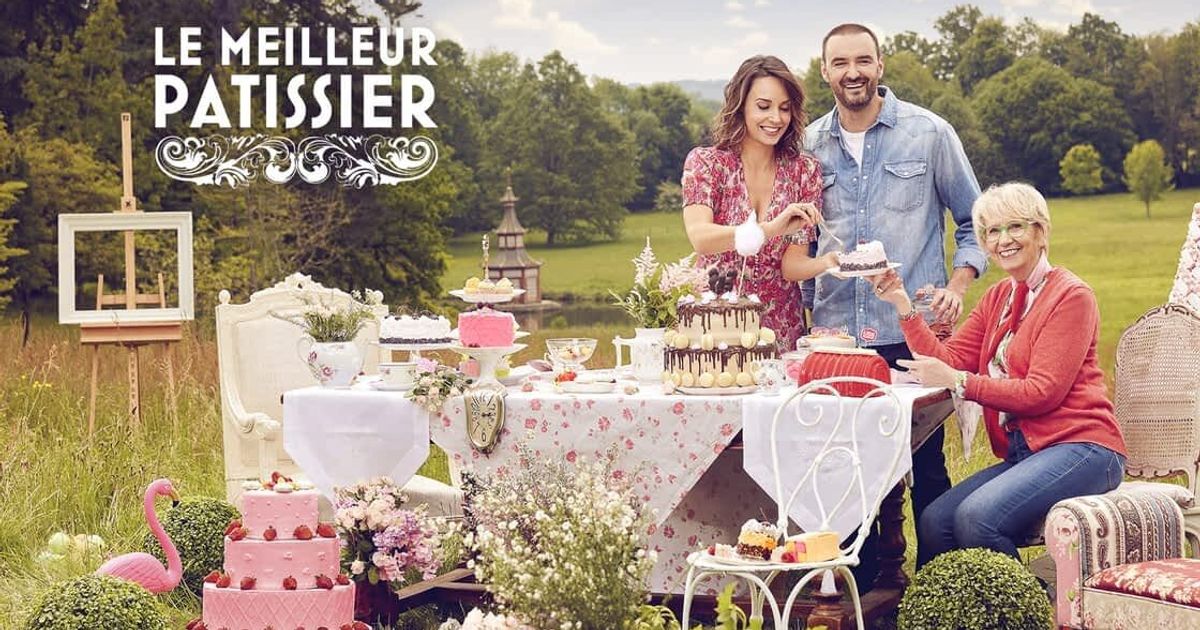If, like me, you’ve watched every episode of the Great British Bake Off (twice), all the professional series, Junior Bake Off, and the celebrity charity episodes, you might need to look further afield for your next fix of television baking competitions.
Fear not, because the GBBO franchise is wide-reaching: the format has been sold in 20 territories, and I have found myself hooked on the French offering: Le Meilleur Pâtissier (‘The Best Baker’).
At first glance, it appears identical to the British version. In a tent, bedecked with bunting, a bunch of amateur bakers are collected together at pastel-hued baking benches. Each week they must endure three challenges – a signature bake, a technical bake, and a creative bake – before being judged by a professional baker and a food writer. The weakest baker on the day is sent home. Even the opening titles and theme music is the same. Cyril Lignac is the French Paul Hollywood, if Paul Hollywood were both charming and handsome (and Michelin-starred), and Jacqueline Mercorelli (known by her stage name, Mercotte) is in the Mary Berry or Prue Leith mould.
But there are a few differences that have garnered Le Meilleur Pâtissier a special place in my heart.
Unlike the hour-long British show, the French version stretches to a whopping 2 hours (longer, of course, if you watch it with adverts). The longer show containing the same format means simply that there is more time, more space to see the nuts and bolts of the baking, and to get to know the contestants in and out of the tent. Plus, there’s scope for more complicated challenges. It’s not that the bakers on the French show are more talented than their British counterparts, but the challenges themselves are harder, and therefore lend themselves to being more creative, more unusual, more fun. The tasks don’t exactly ease the contestants into the competition, but it really is more entertaining to watch a bunch of talented amateurs try to create something that stretches them, than show us 12 different flavourings for a pound cake.
And that’s the key really: French Bake Off is fun. It doesn’t take itself too seriously. Bake Off has always had a high level of camp to it, and the French lean into that with wild abandon.
Where GBBO tends to group its challenges around different forms of baking (cakes, biscuits, viennoisserie) with occasional forays into specialist baking, like vegan week, botanical week, or Tudor week, the French show likes to take things a little further. Their weekly themes range from fairytales to ‘cakes from hell’ and (my favourite) crime scene week, which featured cakes made to look like severed legs, dead cats with guts spilling out, and corpses on a mortician’s block, accompanied by scalpel.
The technical challenges are ridiculous: recipes arrive on the back of maps, like messages in bottles, or accompanied by candles to reveal hidden instructions (approximately half of the contestants manage to set their whole recipe alight in the process). Along the way, guest judges pop up, and team tasks are set.
Le Meilleur Pâtissier is broadcast on a commercial channel and later in the evening so, frankly, they can get away with more than the family-friendly Bake Off, which originated on the BBC, but has since moved to Channel 4. Alongside the aforementioned gory and horror bakes, the most recent series saw a ‘50 shades of cream’ week. The tent was decorated (in)appropriately with discarded negligée strewn around the tent and (bemusingly) rubber ducks on each baker’s bench dressed like playboy bunnies and sailor girls. The bakers tried their hands at a variety of risqué bakes, from sugarpaste handcuffs, to cakes in the shape of men’s boxer shorts, and a technical challenge making les tetons de Venus (nipples of Venus cakes). Ok, much of it is pretty cringe, but it’s all delivered with enough enthusiasm and humour that it doesn’t tip into the unwatchable.
And yes, the language of the show is French (and if you’ve found a version with subtitles, you’re doing better than me), but don’t let that put you off. I find that my schoolgirl French is more than enough to get by. And even if you don’t speak a word, it’s not hard to follow: it’s not just the familiar format that helps, but the instantly familiar highs and lows of the contestants. The excitement at being inside the tent, the nerves at being judged, the elation at success, and despair at disaster are, it turns out, universal.
And, thank God, there are no Hollywood handshakes.






Comments